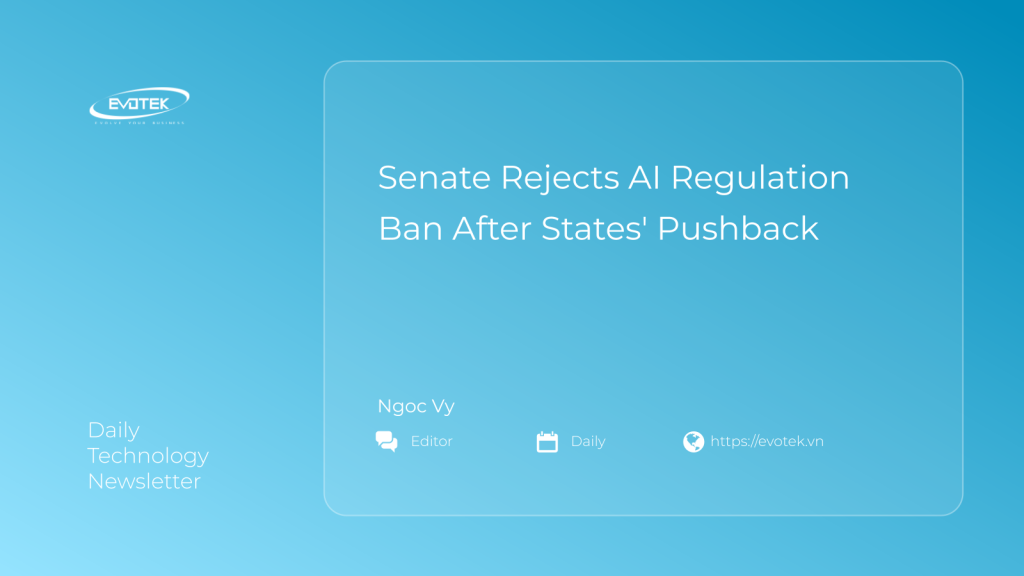WASHINGTON (AP) — A controversial proposal aimed at preventing states from regulating artificial intelligence for a decade was overwhelmingly defeated in the Senate. The measure, included in President Donald Trump’s tax and spending bill, faced strong opposition.
The Senate voted 99-1 to remove the AI provision following weeks of criticism from both Republican and Democratic governors and state officials. The initial proposal sought to prohibit states from AI regulation for ten years. An amended version tied federal funding to states’ willingness to forgo AI regulations, impacting broadband internet and AI infrastructure subsidies.
A last-ditch effort by Republicans to reduce the ban to five years and exempt certain AI laws—such as those protecting children or country music performers—failed to gain traction. Sen. Marsha Blackburn (R-Tenn.) and Sen. Maria Cantwell (D-Wash.) introduced an amendment to strike the proposal entirely.
Blackburn highlighted the frustration that Congress has not legislated effectively on emerging technologies like online privacy and AI-generated deepfakes. She praised state-level actions to protect children and entertainers’ rights.
The amendment vote occurred during an overnight session as Republican leaders worked to secure support for the tax cut bill. Proponents of the AI moratorium argued that varying state laws would hinder AI industry progress and U.S. competitiveness against China.
Some tech leaders, including OpenAI CEO Sam Altman, initially supported the idea, citing the difficulty of complying with diverse state regulations. However, state and local lawmakers and AI safety advocates viewed the proposal as a handout to an industry seeking to avoid accountability.
Arkansas Gov. Sarah Huckabee Sanders lauded Blackburn’s efforts to defend states’ rights to regulate AI, calling it “a monumental win” for Republican Governors, President Trump’s bill, and the American people.
Parents of children harmed by online content also opposed the provision, arguing that it would grant AI companies impunity to develop dangerous products without rules or accountability. Megan Garcia, who is suing an AI chatbot maker, stated that a moratorium would allow companies to create products that sexually groom children and encourage suicide.
Sen. Ted Cruz (R-Texas) attempted to negotiate a compromise with Blackburn, including protections for child safety and Tennessee’s ELVIS Act. Cruz blamed external interests for opposing the deal.
Blackburn cited “problems with the language” of the amendment. Cruz withdrew the compromise and criticized opponents, including China, California Gov. Gavin Newsom, a teachers union leader, and groups he described as wanting to mandate “woke AI.”
Critics argued that Cruz’s proposal could have affected states’ enforcement of AI rules if they created an “undue or disproportionate burden” on AI systems. Ultimately, Cruz voted to strip the proposal. Sen. Thom Tillis (R-N.C.) was the sole dissenting vote.
Jim Steyer, CEO of Common Sense Media, noted that the ban would have stopped states from protecting their residents without offering federal protections in return.
Keywords: AI regulation, Senate vote, Marsha Blackburn, Ted Cruz, state AI laws, artificial intelligence, Sarah Huckabee Sanders, OpenAI, ELVIS Act, online safety.

 日本語
日本語 한국어
한국어 Tiếng Việt
Tiếng Việt 简体中文
简体中文